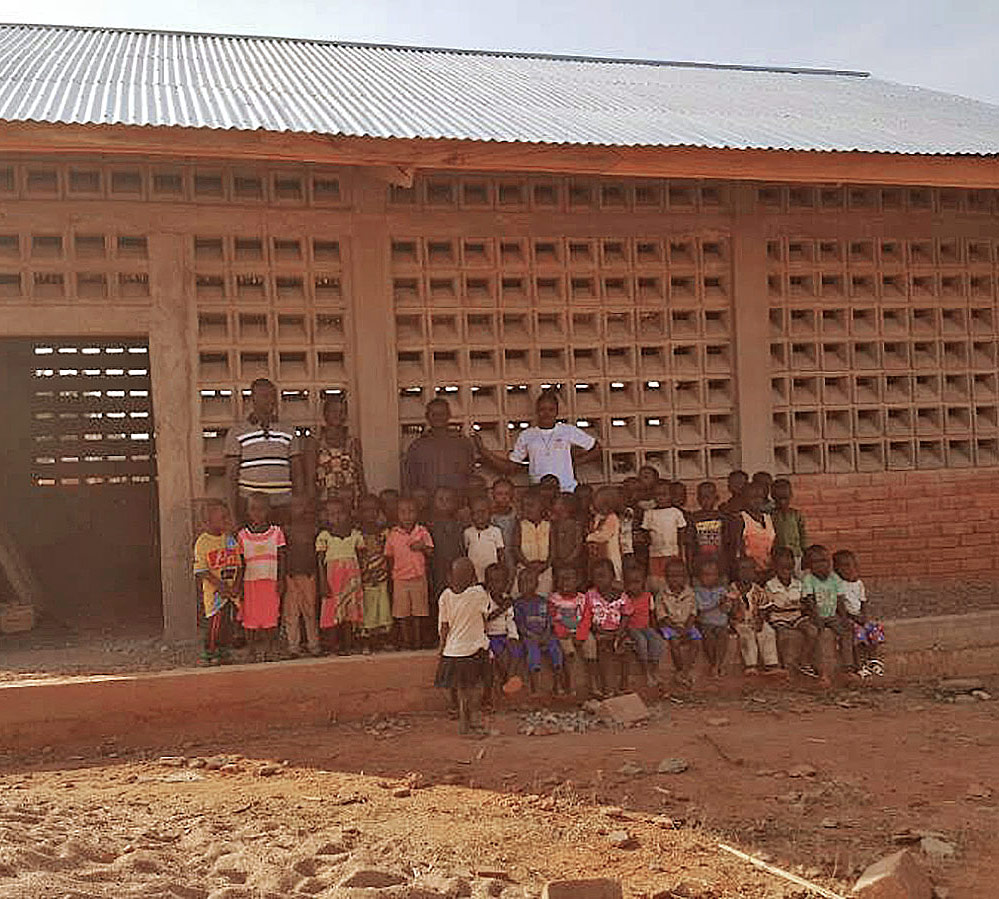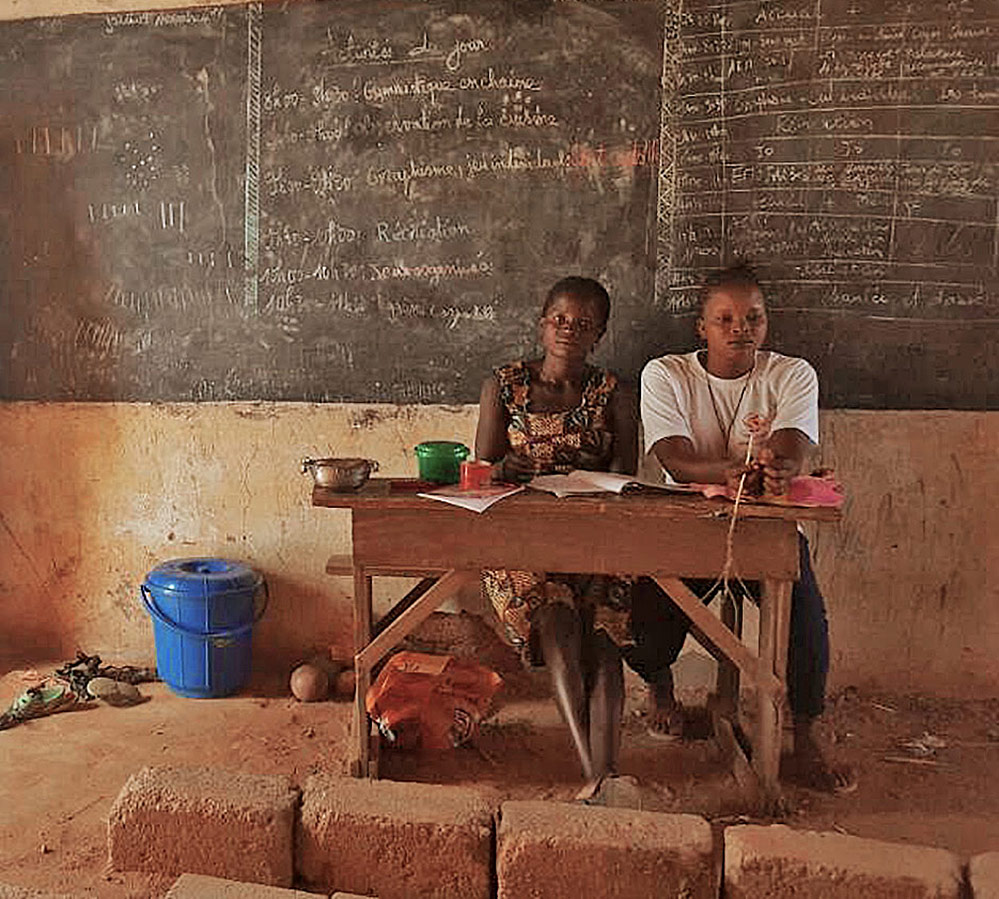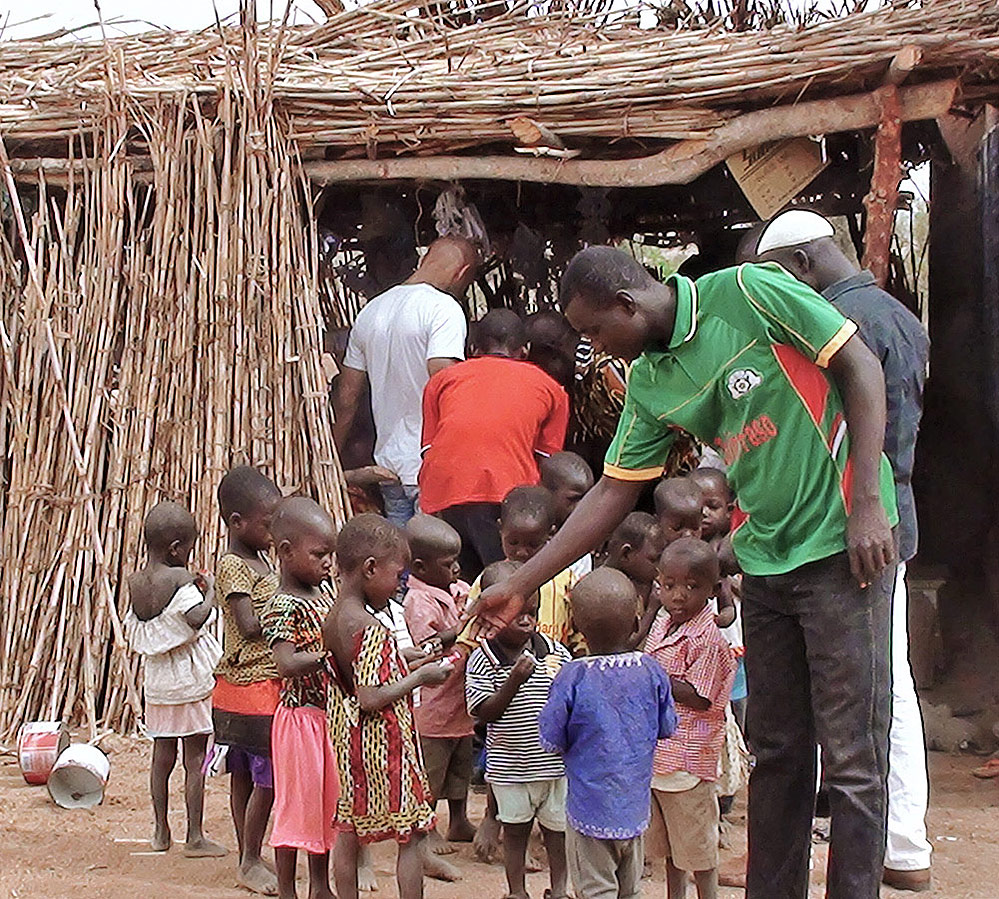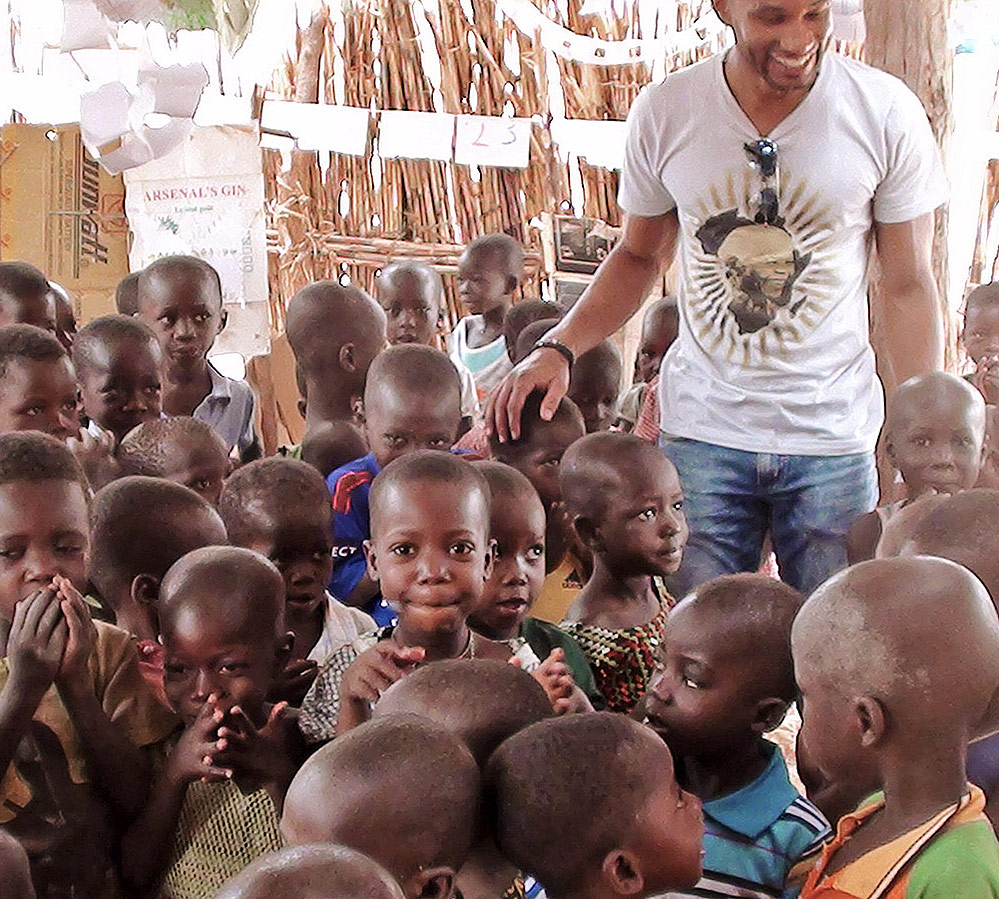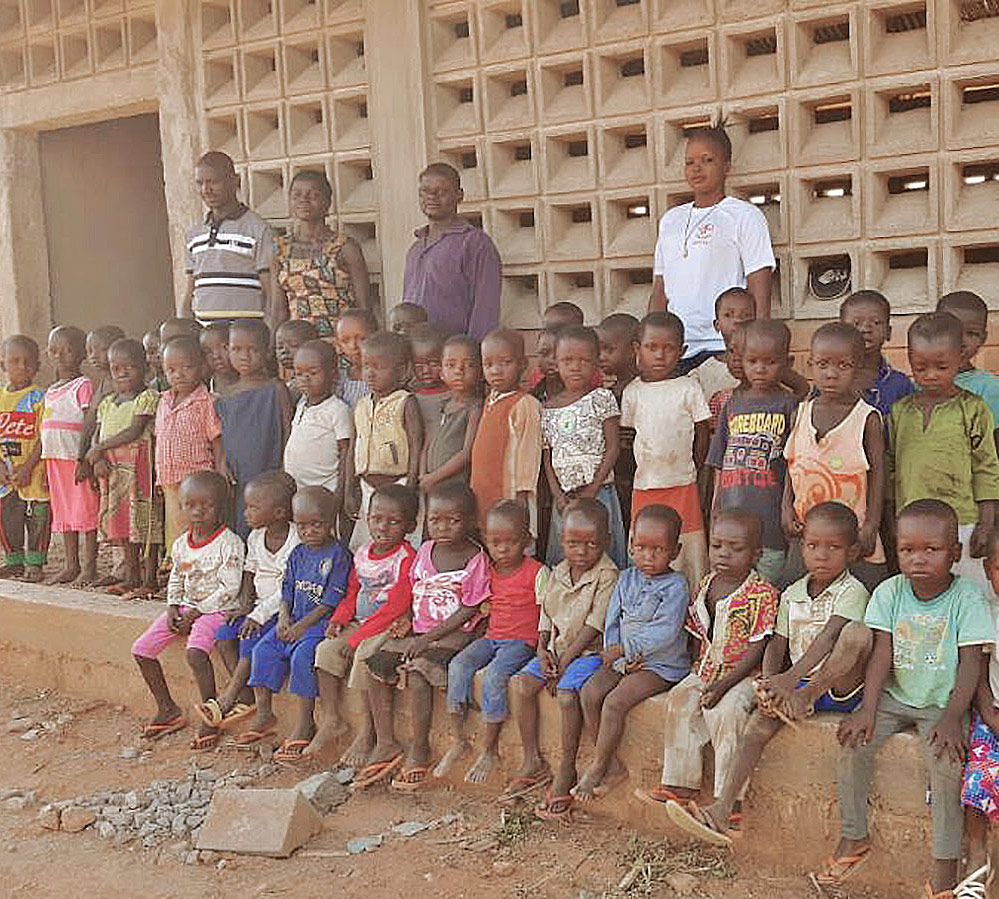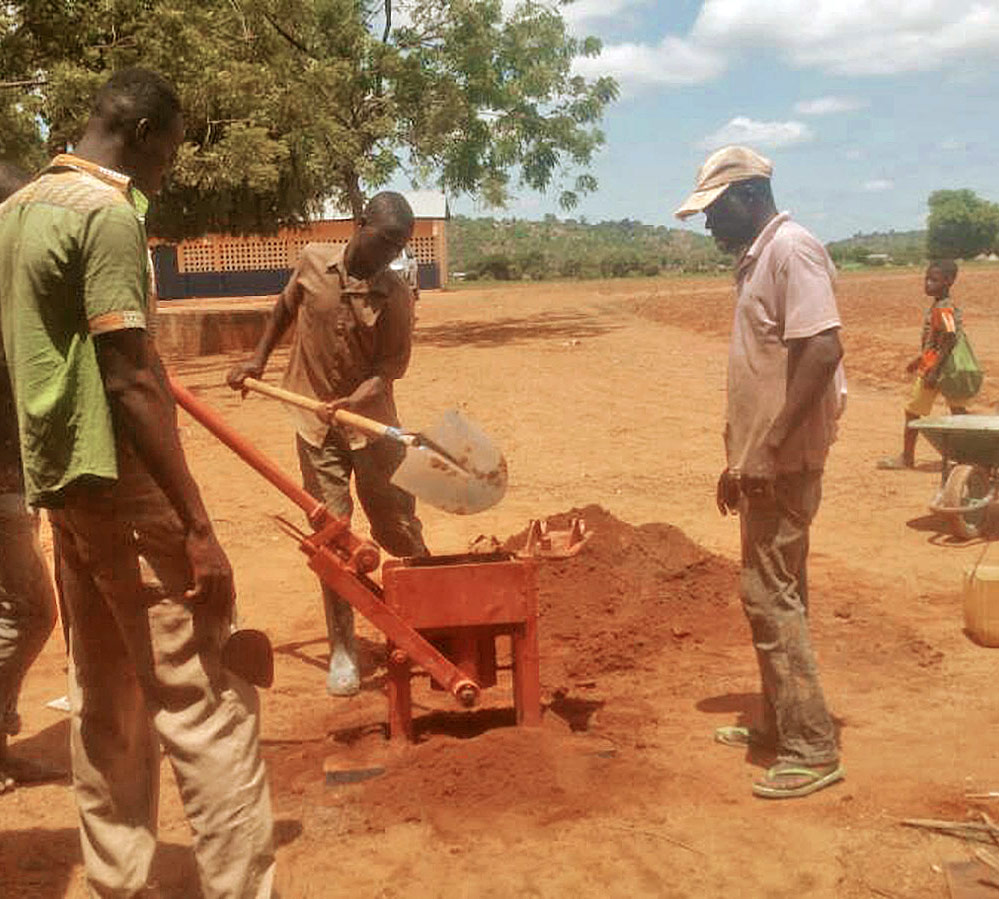Region
Lotogu, Togo
Project start
June 2016
Project duration
18 months
Project status
completed
Beneficiaries
: Children, village and community
Project purpose
Creation of a kindergarten
Total cost
7’000 CHF
Supported by
Private Loans, Pro Carnevale
Val Morobbia Association
Project origins
The current global population growth is estimated at around 80 million individuals a year or 1.1% of the total population. This increase is mainly due to the so-called developing countries and in particular those present in the Sub-Saharan African regions, with a contribution of almost 30 million, and to the south and south-east Asia, with 40 million, to the detriment the contribution of regions such as Western Europe where there are zero or even decreased rates.
The impact of this phenomenon is reflected in the population composition of the various regions, in Sub-Saharan Africa 70.5% of the population is under the age of 30, 30.5% less than 10 years, inversely in Western Europe the population rate under 30 is 31%. The situation in Togo perfectly reflects current trends, in fact, 42% of the Togolese population is under the age of 15, a characteristic that translates into an important number, above 2.5 million, of children and adolescents aged scholastic and preschool.
In a context of extreme poverty, where the per capita gross domestic product is the 11th lowest in the world, the chronic lack of economic resources prevents the provision of sufficient funding to guarantee an effective educational service in terms of number and quality of specific structures, thus precluding a universally recognized right such as basic education to a large segment of the population.
With this in mind, the objective of the project is to encourage access to the education path to about 70 preschool children through the construction of a structure dedicated to the activation of a kindergarten service able to expand the offer of the Barkok school complex.
Project Description
The "if ..." Humanitarian Association in collaboration with the NGO DassiFem has always been active in supporting education and sport through different support strategies that have allowed us to develop excellent interpersonal relationships over time with the teaching staff and the committees of the parents of the various school structures present throughout the local territory.
In 2009, thanks to the funding granted by the Father Mantovani Association of Lugano and the coordination of Jean Lalli Kombatè, a structure that currently offers a primary education service to around 500 children in the region was built.
During 2014, the parents' committee, in agreement with the teaching staff of the structure, decided to start a pre-school kindergarten service, which facilitates access to the children's educational path and partially relieves the mothers, the main generators of goods for subsistence within the community, from the tasks of daily care of the offspring.
In 2015, despite the absence of a suitable structure, improvising one consisting of woods and shrubs, and the lack of teachers, the rotating mothers were organized to treat the children, the first kindergarten service in the region was launched.
The EMAVI project (École Maternelle de Village) on the basis of the synergy of interventions implemented on the territory by the "if ..." Humanitarian Association provides for the construction of a specific structure through the use of local labor and the use of stabilized CEB bricks produced by activities linked to the CIM project.
Expected and reached results
The results achieved were astonishing as despite the delays in the implementation phase due to the initial problems caused by the distrust of the local community towards the external person in charge of the works and the new construction technique, they allowed the activation of an unprecedented service in the whole region.
During the construction phase of the building, where the population has collaborate to the procurement of materials necessary for the manufacture of bricks and to all the works that did not require specific skills, as for the subsequent phase of service management, with the involvement of community women in the shift to ensure the proper functioning of the activity, collaboration and solidarity among the local population has been optimal, which has favored the consolidation of human and interpersonal relationships within the community.
The work also made it possible to enhance and disseminate the knowledge of the new construction technique with the use of CEBs, thus bringing a great benefit to the CIM project.



